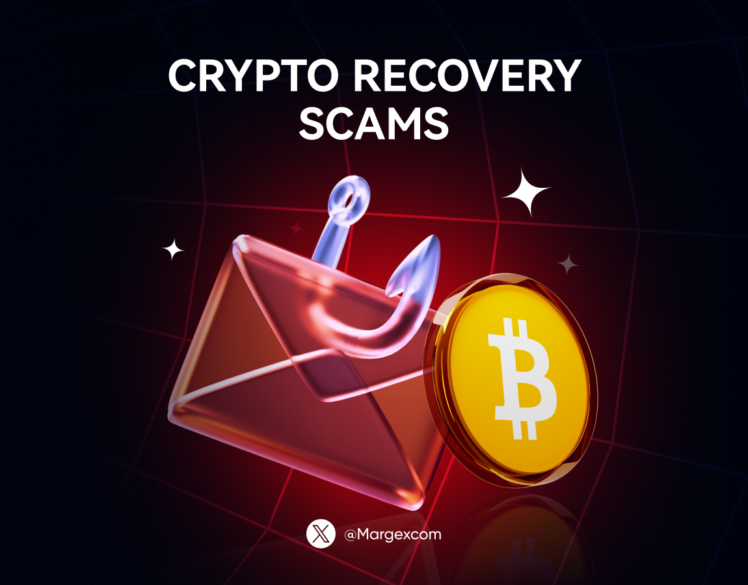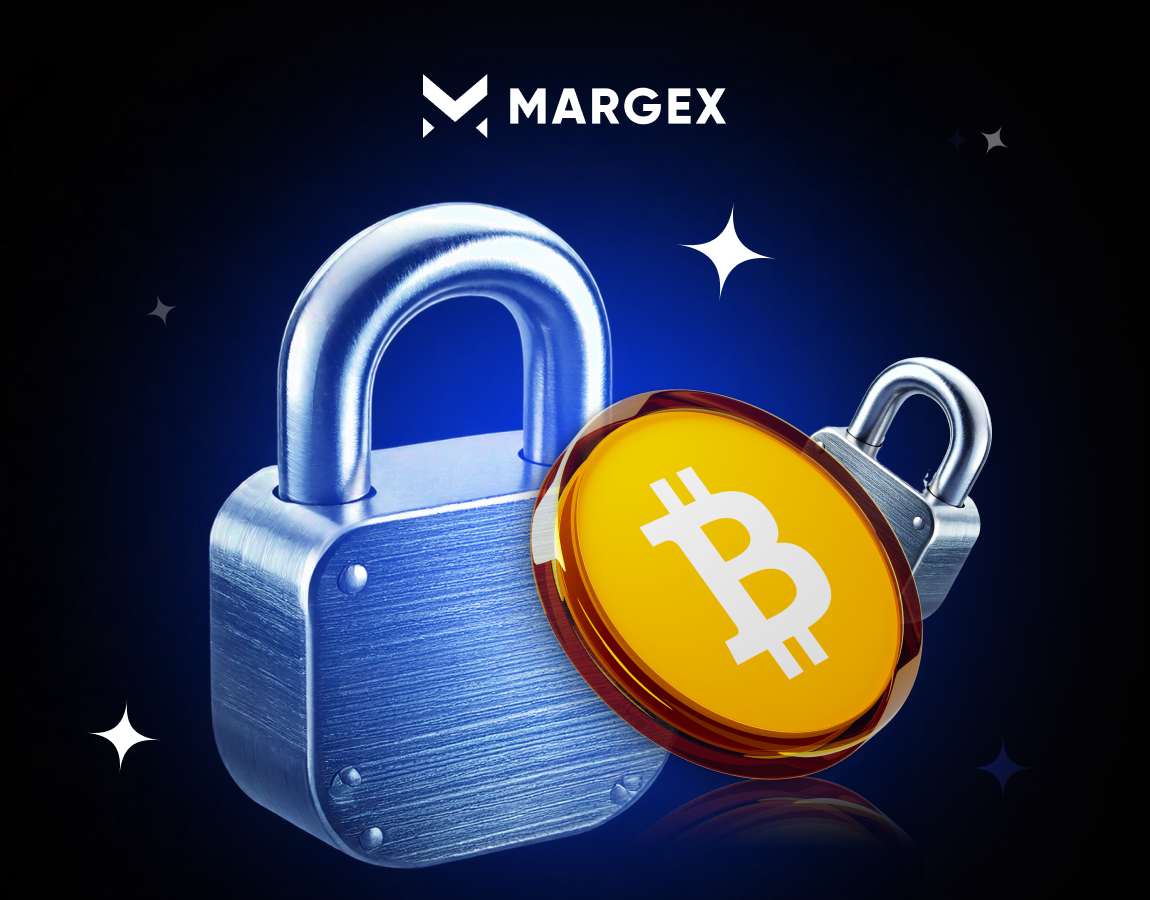
If someone says they never have problems, lose their crypto assets, or get hacked while dealing crypto, they either lie or have never traded. Crypto recovery scams are one of the risks that people face in these situations.
This may be a logical step when seeking help on platforms like X, Reddit, or Telegram. However, doing so puts traders at the mercy of scammers who want to exploit their desperation by pretending to provide recovery services. These hackers are interested in stealing funds and going on the run.
Crypto recovery scams are explained in further detail in this article to inform you of how they operate, what warning signs to look for, and what you can do to help protect your assets.
Understanding Crypto Recovery Scams
Have you ever lost access to your crypto wallet? Perhaps you couldn’t remember the password or lost your private keys? It’s a decidedly painful experience. Sadly, scammers are ready to prey on such circumstances by preying on people desperate to return their lost funds.
Texts in which fraudsters pretend to be experts who say they can recover lost digital assets are known as crypto recovery scams. Because they take advantage of trust, they use technical jargon, share fake testimonials, or create credible AI-generated video endorsements. They want to make people think we have credibility and competence.
Scammers typically ask for upfront payment or a percentage of the ‘recovered’ funds, which seems like a fair deal for someone who initially lacks help. But once the payment is made, the scammer is gone, leaving the victim in an even worse position.
In many cases, lost crypto funds are unrecoverable, especially private keys are lost. This harsh truth allows scammers to take advantage of, many times, impersonating crypto influencers and companies to make it look legitimate.
How to Stay Protected?
You are your first defense against crypto recovery scams: the awareness. Here are a few key tips to keep in mind:
- Recognize Red Flags: Be careful if someone promises to recover your funds. Such guarantees most likely indicate a scam.
- Do Your Research: Look for legitimacy in any person or service that claims it can help you. Before hiring the company, look for reviews from trusted sources that will prevent you from believing testimonials from the company itself.
- Avoid Sharing Sensitive Information: Do not share your wallet credentials or private keys with anyone, even if they claim.
- Seek Reputable Advice: If you need more clarification, seek advice from reliable sources or official support channels.
While those platforms are great places to be, remember to be very carefully trusting of people with unsolicited messages suggesting their service can save you from losing your Twitter account or sending you to prison. Vigilance and informed decision-making are the best ways to protect you from crypto scammers.
Understanding Crypto Recovery Scams: How They Operate and How to Stay Safe
Among the most deceptive in cryptocurrency, crypto recovery scams are believably scammers with zero remorse. However, knowing the methods they use to guide you through avoiding being a victim is also possible. These scams usually work on people whose digital assets were taken away due to hacking, forgetting passwords, or forgetting private keys.
Fraudsters tend to identify their victims through online forums, social media, or phishing emails, targeting people already frustrated but vulnerable. However, as they operate on social platforms, they can use social listening tools to listen to posts asking for help to recover lost cryptocurrency. For example, if you post about bits of misplaced private keys, scammers will appear out of nowhere, offering to help.
The scammers then work to get your trust after identifying you as a potential target. Most of the time, they act as normal companies or crypto recovery experts. They sometimes go even further, making it seem like they are popular influencers or cybersecurity firms.
However, this impersonation tactic normally works; a professionally designed website, phony success stories, and fake testimonials will make the person or company appear as credible as you can imagine.
They’ll ask for payment upfront once they find out you’ve been convinced of their legitimacy. He might say that he needs the money for legal processes, to stoke processing fees, or because of a finder’s fee. But once the money is transferred, they disappear without making any service.
Occasionally, they may attempt to get more money from you by offering to do the recovery process as quickly and cheaply as possible for an extra fee. Be careful who comes asking for upfront payment to get your cryptocurrency back. Awareness of these schemes will help you avoid falling victim to phishing attacks and crypto recovery services common to the crypto world.
Understanding the Targets of Crypto Recovery Scams
Crypto recovery scams are targeted at anyone; scammers mostly aim at people who are desperate or who would like to get their lost funds back. These scammers target people based on specific circumstances that affect them emotionally. Below are the most common categories of individuals targeted by these scams:
Newcomers to Cryptocurrency
If you’re new to cryptocurrency, you might not know much about how to keep your digital assets safe. If a person forgets a password or doesn’t write down their private keys, they could lose access to their wallet. This inexperience makes scammers prey on the system and pretend to be experts ready to help. Scammers take advantage of their limited knowledge to create the illusion of trust and induce people to do what they want to do.
Hacking Victims
This wouldn’t matter whether the attacker was experienced or a total beginner to crypto; if an attacker can hijack our app, they can do it. Once someone has been hacked, they are desperate to get their funds back and usually won’t question people who claim to help return them. This emotional vulnerability makes scammers target this kind of user and claim they can get back the stolen funds in exchange for an upfront fee, resulting in further losses.
Ponzi Scheme Participants
Another main target is those who have been victims of Ponzi schemes or similar fraudulent schemes. Many of these people have already been cheated and are desperate to regain their investments. Scammers exploit this desperation by offering false promises of recovery. In some cases, the scammers have ties to the original fraudulent operation that they’re using to extort more money from victims under the guise of helping.
Scammers heavily use emotional manipulation. They craft whatever false narrative they see fit, based on hope and trust, to spin their victims into handing over any additional money they please.
Be wary of anyone, especially strangers, who promise guaranteed solutions to recover lost cryptocurrency. Their offers often lead to further financial harm. Always verify claims and seek advice from reputable sources before taking action.
Signs to Identify Potential Scams
There are genuine crypto recovery services; not all of them are legitimate. If you’re considering seeking assistance, it’s important to recognize the following warning signs that may indicate a fraudulent recovery service:
Guaranteed Recovery promises
Don’t fall for any service that says it will recover your cryptocurrency. Such guarantees can come only from no reputable service. This is true of cryptocurrencies operating on decentralized systems, which oftentimes makes recovery near impossible — especially when you don’t have access to private keys. A certainty claim in this context is a big red flag.
Absence of a Physical Address
Normally, legitimate businesses have their contact details, such as an address or company registration. The existence of the information is key; if it is missing or unverifiable, proceed with caution. Often, fraudsters use fake, unregistered accounts, meaning there is no recourse if victims can’t also track down the fraudsters.
Overly Slick Websites
Instead of showcasing your knowledge, they’re showcasing your and your team’s flashy website capabilities. If a website is too professional or uses stock images for team photos, that should raise suspicion. Well-designed websites lend a false sense of legitimacy and lower your guard against scammers.
Demand for Upfront Payments
Scammers often demand up-front fees before they do anything, especially if they run around trying to lure you on X. If a recovery service requires payment in advance, it’s a scam that will take advantage of your situation and not give you any real help.
Sensitive Personal Information Requests
Do not share private keys, seed phrases, or other private information with anyone trying to provide recovery services. Such data will not be required from trustworthy providers. If you get any request for this information, it’s almost certainly an attempt to steal your funds.
Read up on these crypto recovery scams, keep these red flags in mind, and you can better protect yourself from them happening again.
Common Strategies Scammers Use to Build Trust
There are many ways scammers will trick you into believing they are legitimate. With awareness of these strategies, you will be less likely to be scammed. Fifth, some of the most common methods scammers use to build trust are below.
Fabricated Success Stories, Fabricated Testimonials
Many scammers’ websites and, to a lesser extent, social media profiles are littered with glowing reviews and fake success stories. Most of these testimonials claimed to be from happy customers are completely made up or plagiarized from other sources.
When it comes to protecting yourself, just double-check reviews on sites that are on credible, outside platforms and guarantee they are authentic.
Impersonating Well Known People or Organization
Another form of the scam is creating fake profiles or websites that mimic famous people in the crypto space or well-known companies. They are crafted with such fraudulent representations of legitimacy to deceive and manipulate you so that they remain no more than dishonest.
Social Engineering Tactics
Social engineering is a favorite of scammers, as psychological manipulation is one of their favorite tools for exploiting their victims. Most of the time, it comes as friendliness and empathy when they come to you with emails or direct messages, but that’s supportive and understanding. This is to lower your defenses and put you in a vulnerable state during emotionally charged times.
Emotional Manipulation
Scammers are very much dependent on exploiting emotion. Fear, anxiety, and urgency are ways that they control your choice-making process. For instance, they can invoke the fear of missing out (FOMO), saying if you don’t do things right away—that is, hire their services—they’ll lose all control, and it will be too late to recover. That emotional pressure can crank up even the most cautious and get people to make rash, regrettable decisions.
As you become emotionally overwhelmed, you should always perform thorough research and independently verify claims. By being aware of these trust-building tactics, you’re taking a very important first step to staying alert and protecting your assets.
Tips to Safeguard Against Crypto Recovery Scams
However, vigilance and acting accordingly still protect you from crypto recovery scams. The problem can be reduced largely by following key precautions, as most fraudulent schemes operate similarly. Practical strategies that will help keep your digital assets safe.
Safeguard Your Private Keys
Make sure that your private keys are secured in a hardware wallet or encrypted in a file that only you can retrieve. Never share your private keys regardless of how your loot will be paid. To quote my favorite journalist, Remember that the first line of defense against potential scammers is a well-protected crypto wallet.
Be Wary of Unrealistic Promises
Fake projects that fraudsters promote generally say they can recover your lost money instantly. If the offer is too good to be true, it probably is. Don’t trust what you don’t know, and avoid any such scams by thoroughly checking any service that claims to assist.
Conduct Thorough Research
If you’re considering engaging with any recovery service, conduct a little research first. Check out reviews, ask in reputable crypto communities, and ensure they are legit. Your most effective tool against crypto fraud is comprehensive research.
Enable Two Factor Authentication.
You can only add 2FA to your wallets and exchange accounts. If someone else has access to your password, they won’t be able to use your digital assets without the additional verification code. Always allow 2FA whenever possible.
Be Skeptical of Unsolicited Offers
Direct messages and posts where users reach out with lost funds being forwarded to scammers are favorite targets of the scammers. With any unsolicited offer of recovery services, you should treat the offer with extreme caution and do more than you would normally do to verify the credibility of such a person as they approach you.
Stay Aware of Common Tactics
Crypto scams target those who have lost access to their wallets, using banditry that follows overused buzzwords, originated by the sense of urgency and vulnerability. Scammers will pretend to be experts or representatives of standardized anti-bundler security firms or high-ranking figures in the crypto community.
They usually win your trust with the promise of guaranteed results and then use an upfront fee or a share of the ‘improved’ assets they ‘recover.’ They pay for once and vanish without recourse for victims. Always remember: There is no legitimate service that can ensure crypto recovery. Take care, fact-check, and don’t get into a hurry to make a deal.
With the help of all your tips, you can remain informed and careful, stay safe from crypto recovery scams, and protect your assets.





